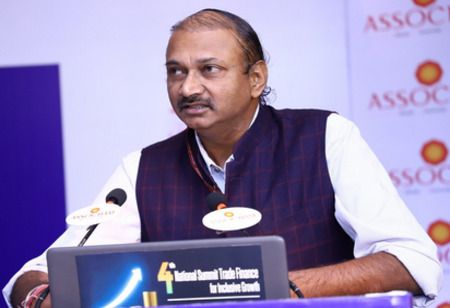
Joint Secretary, MSME Ministry Urges for MSME Resilience


Ateesh Kumar Singh, Joint Secretary at the Ministry of Micro, Small and Medium Enterprises, urged businesses to step up and collaborate on expanding government datasets while providing specialized feedback to strengthen MSME resilience during these turbulent times.
His remarks came during a PHDCCI-organized event in New Delhi.
Singh mentioned that these challenging conditions would be addressed "with great determination, care and skill."
Also Read: Government Appoints TCA Kalyani as New Controller General of Accounts
The Joint Secretary referenced previous disruptions from the COVID-19 outbreak and stressed that "we [the government] endured the challenges, recognized the dangers and worked to develop solutions." He noted that the government remained "steadfast and unwavering" in its support of MSMEs.
While discussing internal reports being developed to evaluate current tariff conditions, Singh observed that numerous businesses have built tariffs into their profit structures to maintain consistent landing costs.
"This approach may exist, but it's not a long-term solution - we must do better," he declared. He also mentioned that the government has acknowledged production transfers and trade rerouting occurring through Nepal and Sri Lanka.
Also Read: Are all Foods Under EAT-Lancet Commission's Diet Accessible to Rural People?
In his speech, the Joint Secretary remarked that such challenges would continue to emerge "periodically."
"Therefore, we must develop the appropriate strategy so we have a framework for managing these types of disruptions," he stressed, noting that the ministry was actively working toward this goal.
Also speaking at the event, Rajan Sudesh Ratna, Deputy Head and Senior Economic Affairs Officer at the United Nations Economic and Social Commission for Asia and the Pacific (UNESCAP), highlighted that the time had come to maximize the potential of existing free trade agreements (FTAs). The officer pointed out that current usage rates were "below 10 percent."
Also Read: India's Commitment to Net-Zero Emissions by 2070
Ratna additionally stressed the importance of export diversification and the necessity of reaching markets that could serve as major alternative importers for products currently subject to elevated US tariffs.
Addressing the current circumstances, he referenced the duties implemented by the United States in April in contrast to the ones that are presently established.